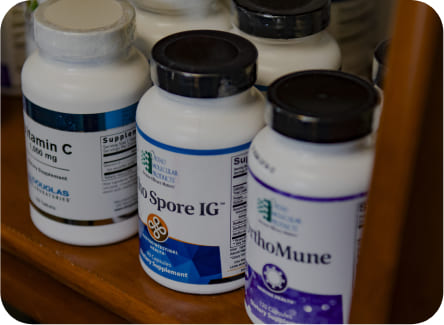
Diflucan and Pregnancy: Safety Considerations for Expectant Mothers
Diflucan: an Overview of the Antifungal Medication
Diflucan, known generically as fluconazole, is a widely prescribed antifungal medication used to treat various fungal infections. This triazole antifungal works by inhibiting the production of ergosterol, a crucial component of fungal cell membranes. Diflucan is available in tablet, suspension, and intravenous forms, allowing for flexible administration based on the patient's needs.
Characterized by its broad-spectrum antifungal activity, Diflucan effectively combats infections caused by Candida species, cryptococcal meningitis, and other fungal pathogens. It has gained widespread acceptance due to its generally well-tolerated nature and high efficacy rates. However, like any medication, Diflucan carries potential risks and considerations, particularly during pregnancy.
| Property |
Value |
| Drug Name |
Fluconazole |
| Brand Name |
Diflucan |
| Drug Class |
Antifungal |
| Mechanism of Action |
Inhibits ergosterol synthesis in fungal cell membranes |
Pregnancy and Yeast Infections: Understanding the Risks

During pregnancy, women are more susceptible to yeast infections due to hormonal changes and increased moisture levels. These infections can cause discomfort, itching, and burning sensations in the vaginal area. Left untreated, yeast infections may lead to complications, such as preterm labor or low birth weight. It is essential to address these infections promptly to ensure the well-being of both the mother and the unborn child. Diflucan, an antifungal medication, may be an option, but its safety during pregnancy requires careful evaluation.
Yeast infections during pregnancy are not uncommon, affecting a significant number of expectant mothers. These infections can be caused by various factors, including a weakened immune system, increased glycogen levels, and hormonal fluctuations. Untreated yeast infections can pose risks to both the mother and the developing fetus, making it crucial to seek appropriate medical attention and treatment.
While some antifungal medications may be considered safe during pregnancy, it is essential to consult with healthcare professionals to weigh the potential benefits against any risks. Diflucan, a commonly prescribed antifungal, has been the subject of extensive research and evaluation regarding its safety profile during this delicate period.
Evaluating Diflucan's Safety Profile during Pregnancy
Diflucan, the brand name for the antifungal medication fluconazole, has been extensively studied for its safety profile during pregnancy. While animal studies have not shown any direct harm to the developing fetus, there is limited data on its use in pregnant women. However, the potential benefits of treating severe fungal infections during pregnancy may outweigh the risks. Healthcare professionals carefully evaluate each case, considering factors like the severity of the infection, gestational age, and potential risks to both the mother and the unborn child.
During pregnancy, the body undergoes physiological changes that can increase the risk of developing yeast infections. Diflucan may be prescribed if the benefits of treatment outweigh the potential risks. Pregnant women should consult with their healthcare providers to make an informed decision, weighing the pros and cons of using diflucan or exploring alternative treatment options. Open communication and close monitoring are crucial to ensure the safety and well-being of both the mother and the developing fetus.
Potential Side Effects and Precautions to Consider

While Diflucan is generally well-tolerated, it is essential for expectant mothers to be aware of potential side effects. Common reactions may include nausea, abdominal pain, diarrhea, and headaches. However, more severe side effects such as liver damage or allergic reactions are rare but should be monitored. Additionally, Diflucan can interact with certain medications, so it is crucial to disclose all prescribed and over-the-counter drugs to healthcare providers.
Precautions should also be taken to minimize risks during pregnancy. Diflucan should only be used when the potential benefits outweigh the potential risks to the developing fetus. Dosage adjustments may be required, and regular monitoring of the mother and fetus is recommended. Open communication with healthcare professionals is essential to ensure the safe use of Diflucan during this delicate period.
Alternative Treatments for Yeast Infections during Pregnancy
While Diflucan may be an effective option for treating yeast infections, expectant mothers may consider exploring alternative treatments that pose minimal risks during pregnancy. Herbal remedies like boric acid suppositories, probiotics, and natural yogurt can help restore the vaginal flora balance. However, it's crucial to consult with a healthcare professional before using any alternative treatments to ensure safety for both mother and baby.
Another potential option is dietary adjustments, as certain foods may exacerbate or alleviate yeast infection symptoms. Your healthcare provider can guide you on appropriate dietary changes and recommend lifestyle modifications that may help prevent or manage yeast infections during this delicate phase.
| Treatment |
Description |
Precautions |
| Boric Acid Suppositories |
Antifungal properties that can help treat yeast infections |
Consult a healthcare professional for proper dosage and duration |
| Probiotics |
Restore vaginal flora balance by introducing beneficial bacteria |
Choose pregnancy-safe probiotic strains and consult a healthcare professional |
| Dietary Adjustments |
Avoid foods that may contribute to yeast overgrowth, such as sugary and processed foods |
Ensure a balanced and nutritious diet under professional guidance |
Consulting with Healthcare Professionals for Informed Decisions
Given the sensitive nature of pregnancy and medication use, it is crucial to have open and transparent communication with healthcare professionals. Their expertise and guidance can help navigate the potential risks and benefits, ensuring the well-being of both the mother and the developing fetus. A collaborative approach, involving obstetricians, pharmacists, and other relevant specialists, empowers expectant mothers to make informed decisions tailored to their unique circumstances.
Proactively discussing concerns, asking questions, and sharing relevant medical histories with healthcare providers is essential. They can provide personalized recommendations based on individual risk factors, medical conditions, and the stage of pregnancy. This collaborative decision-making process fosters a sense of confidence and ensures that the chosen course of action aligns with the mother's values and preferences.




